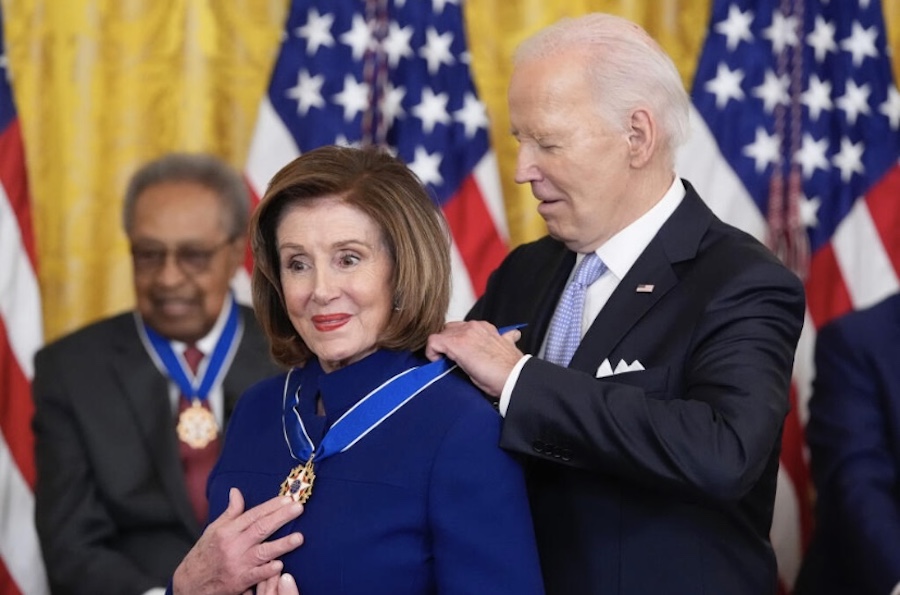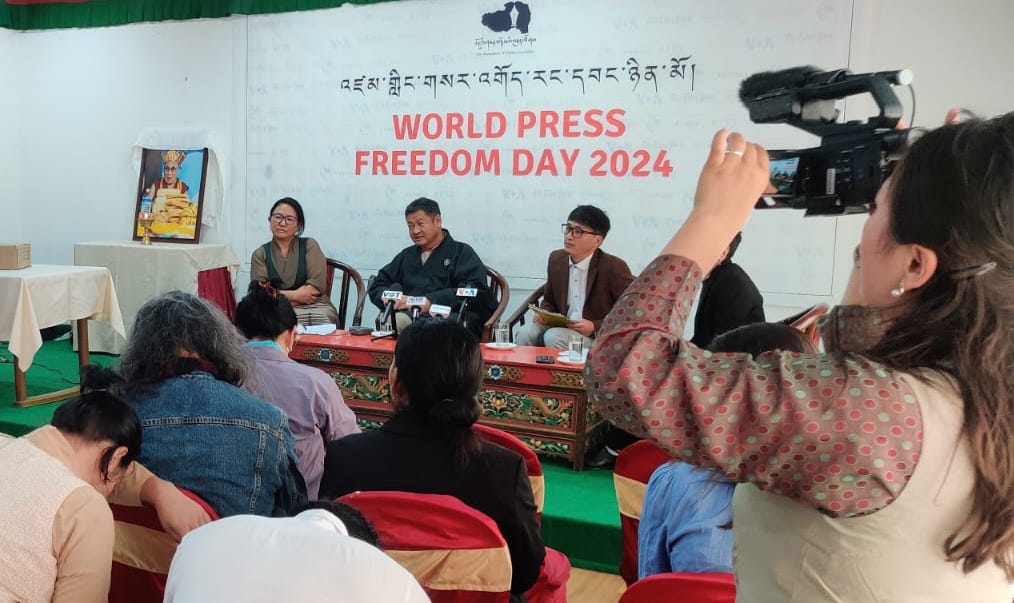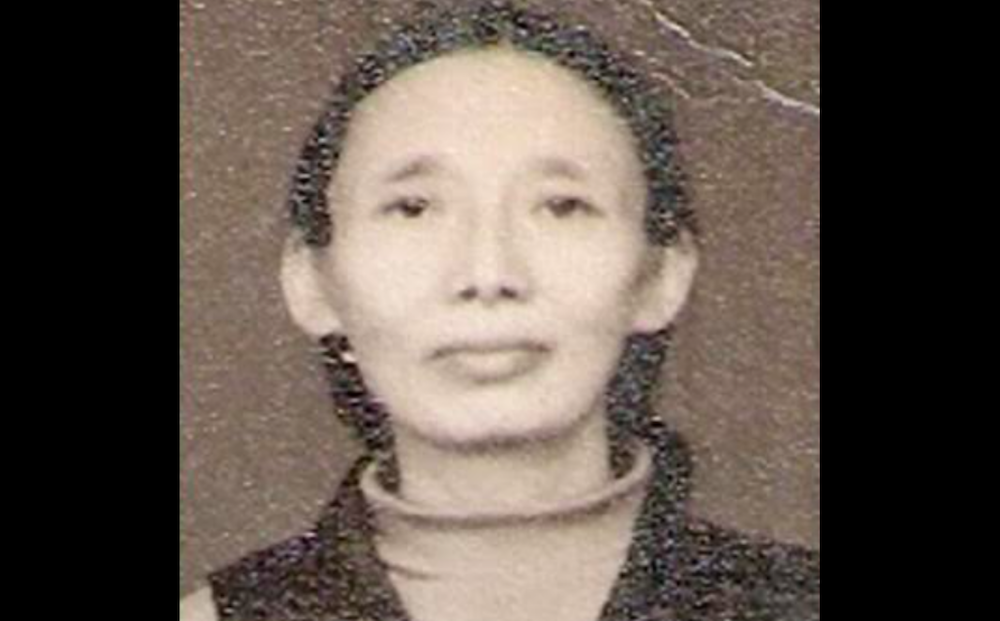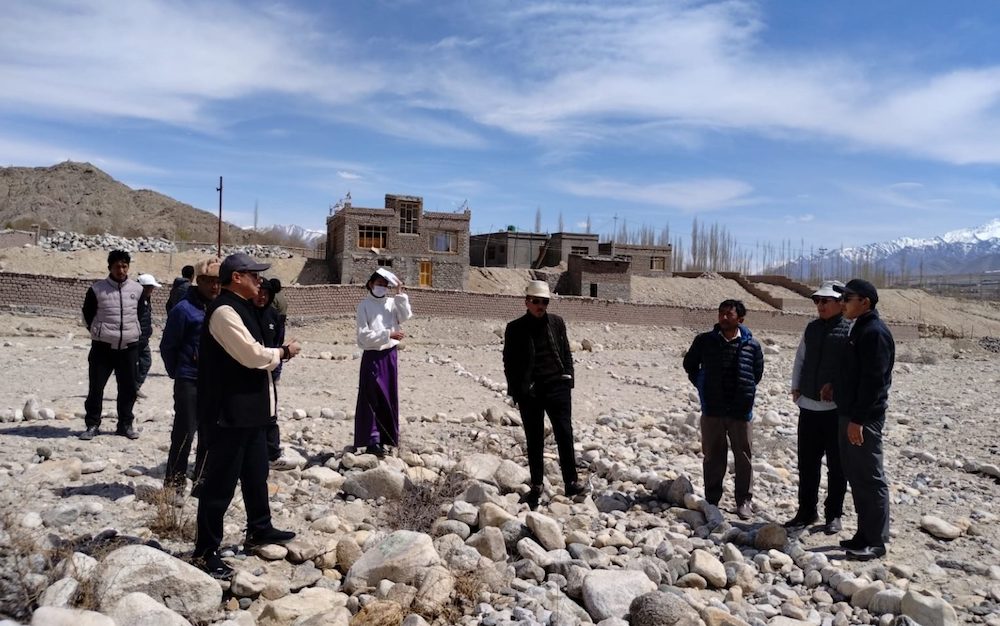Today, 10 March 2008, is the 49th anniversary of the Tibetan people’s peaceful uprising for their freedom. On this occasion, the Kashag pays its tribute to those heroic men and women of Tibet who have sacrificed their lives for the cause of the Tibetan people, as well as express our solidarity with those Tibetans who are presently suffering under Chinese repression. The Kashag also extends its greetings to all the Tibetans in and outside Tibet
In the previous 10 March statement of the 13th Kashag, we have dwelled, among other things, on the status of the Tibetan people, the structure of the exile Tibetan administration, plans to sustain the Tibetan struggle should it drag on for a long time, the role of Tibetans in and outside Tibet and on the status of the Sino-Tibetan dialogue. While reiterating all these points, the Kashag would like to express its appreciation for those Tibetans who have, in the recent period, undertaken numerous activities in Tibet activities that are both peaceful and law-abiding with sincerity and courage for the benefit and the protection of the Tibetan religion and culture. All Tibetans be it monks, lay people, young or elderly and particularly the majority of the communist party cadres and civil servants in Tibet who are always in a state of great fear, intimidation and suspicion have been able to keep alive, with great courage, the Tibetan spirit and their ultimate hope for the resolution of the Tibetan issue. While acknowledging and appreciating this remarkable quality, the Kashag as well as the entire exile Tibetan community firmly believe that this Tibetan spirit will continue to remain so in the future as well.
Similarly last year, many governments and countries across the world who have great faith in His Holiness the Dalai Lama and who are concerned about the issue of Tibet have carried out a number of activities which reflected their support to us Tibetans. The Kashag, on behalf of all the Tibetans in and outside Tibet, would like to express heartfelt thanks to all of them.
The mutually beneficial Middle-Way Approach, which is envisioned by His Holiness the Dalai Lama, has been framed into a policy with the support of the great majority Tibetans in and outside Tibet. This was further unanimously supported by the Tibetan Parliament-in-Exile. On the basis of this policy, dialogue with the Chinese government is on going. Subsequently six rounds of talks have been conducted since 2002. These talks have been helpful to us in clarifying our respective positions. These talks have also benefited the international community and Tibetans in Tibet. However, no concrete results have been achieved on the fundamental issue of Tibet. Moreover there is, today, a heightened repression in Tibet and stepped up vilification campaign against His Holiness the Dalai Lama. We are extremely disappointed by these unfortunate developments.
In the course of these exchanges, we have categorically stated to the Chinese government that we do not have any hidden agenda, or issues other than the basic demand that they should implement the conditions for National Regional Autonomy as set forth in the constitution of the Peoples Republic of China by granting a meaningful self-rule for all Tibetans under a single administration. We have also made it very clear that this demand is in line with the legitimate rights of all the minority nationalities. Based on the present reality, this demand is only a means to accomplish the aspiration of both Tibet and China; it is not something that is based on the past history of Tibet.
History is a set of records of past happenings that cannot be amended. However, no independent countries or autonomous regions have remained in the same status as in the past. There is also no reason to remain so. For example, the current scope of the sovereign power and territorial boundary of the Peoples Republic of China is something that never happened in its history spanning some centuries prior to 1949. Insisting on history to decide the prospects of the future is simply indulging in a blame game, or finding excuses. It is not at all in tune with the reality. Since we are not stubbornly clinging to the idea that the future of the Tibetan people should be based only on our version of history, the gap in the Tibetan and Chinese viewpoints on this issue is not unbridgeable.
Since the status of National Regional Autonomy is a condition by which the individual minority nationalities are benefited, it should be uniformly granted to all Tibetans. There is no reason for scattering them. There is also no need to follow a historical basis on this matter. In a nutshell, if the future of the Tibetan people were to be decided on the basis of its past history, then there is no way that the Middle-Way policy can be adhered to.
The problem of Tibet is neither related to the personal issue of His Holiness the Dalai Lama nor concerned with the benefit of the Tibetans in exile alone. This is universally known. Currently the situation of the Tibetan people inside Tibet is not at all satisfactory. Anybody can see this. Therefore, for the happiness of all Tibetans and for the preservation of their national identity, language, customs, culture and the traditional sciences, His Holiness the Dalai Lama and the organisational set-up of the Tibetan Diaspora both based in a free country have the responsibility to act as the spokespersons of the Tibetans in and outside Tibet. To do so is, in fact, their historical responsibility. Due to the reasons cited above, although there may not exist an issue of Tibets sovereignty, both the Tibetan and Chinese sides have to accept the truth about the existence of the main issue concerning the welfare of the Tibetan people.
Since the restoration of direct contact with the Chinese government in 2002, no positive change has taken place in Tibet. Moreover the Chinese authorities have taken, and are continuing to take, many actions that can be described as inhuman behaviour. Beside the fact that there has been a heightened repression and brutality in Tibet since 2006, baseless accusations are being hurled against His Holiness the Dalai Lama. The innocent Tibetans in general, and particularly the monks and nuns are exposed to unlimited restrictions and harassment under the pretext of patriotic re-education. In spite of being an atheist state, the Chinese government interferes in the religious affairs by issuing a decree on the recognition of Trulkus. It also uses a section of the Dholgyal propitiators as a tool to separate the Tibetan people. And those who express their honest views in a non-violent and peaceful manner are beaten and incarcerated. These actions are the true behaviour of separatists that uproots the co-operation between the Tibetan and Chinese peoples. Harmony and unity should be created through mutual trust by unifying the minds. There is no historical precedence that a unity enforced through repression has sustained. Neither will it be sustained in the future. The recent developments in Tibet have greatly harmed the environment of the Sino-Tibetan dialogue. The Chinese governments assertion that it attaches importance to the current process of dialogue also appears to be nothing more than empty talk. Consequently, it has made it more difficult for the exile Tibetan administration to guide the Tibetans in and outside Tibet to abide by the Middle-Way policy.
So far the Chinese government has not given a definite response to the demands put across by the envoys of His Holiness the Dalai Lama during the sixth round of talks. Therefore, it is doubtful whether the Chinese side is really willing to resolve the current problems of Tibet. However, the Kashag will not change the current policy of the Middle-Way Approach, irrespective of whether the dialogue with the present leadership of the Peoples Republic of China will lead to any solution on the issue of Tibet or not. We are firmly committed to the continuance of the ongoing dialogue process with the Chinese government.
Employing numerous channels, the different agencies of the Chinese government have been sending various signals and gestures to us. However, unless we receive a clear and unambiguous message through a recognised official channel, there is no way that we can respond to these signals and gestures.
Following the objections raised by many highly-realised and recognised spiritual masters of the earlier period including the Great Fifth Dalai Lama, Trichen Ngawang Chokden, Changkya Rolpai Dorjee, the Thirteenth Dalai Lama, etc., His Holiness has very kindly advised us against the propitiation of the Dholgyal on numerous occasions. However few monastic institutions of the Gelug tradition have still not clarified their positions on this issue, as a result of which the propitiators and non-propitiators of Dholgyal live together under the same roof. A broad section of the enlightened monks has, therefore, expressed their views through a number of campaign activities that this matter must be resolved once and for all. As such, during his recent visit to Mundgod, South India, His Holiness the Dalai Lama has suggested to the Gelug monastic institutions that for the future convenience of all concerned a referendum among the monks be conducted. The responsible authorities of the monastic institutions have unanimously supported this idea and a referendum was conducted by relying on the Buddhist Vinaya system of voting by administering Tsul-shings (Sangha voting sticks). Subsequently, most of the Gelug monastic institutions, including the three Great Monastic Seats, have disassociated themselves completely from the Dholgyal propitiators. While expressing our appreciation for this, the Kashag would like to urge the monastic world that they should not be negligent on this matter in the future as well. There is, still, a tiny number of monks who are not able to stop the propitiation of Dholgyal. Since they cannot live within the compounds of the Great Monastic Seats, they should move out to make a separate living elsewhere. Towards this end, the Central Tibetan Administration will provide them necessary assistance as we provide to all other Tibetans.
The Kashag would like to express its heartfelt thank you to the government and people of India for providing unmatched assistance and shelter to all the Tibetan exiles over the last almost fifty years. The Kashag would like to urge that, as a way of expressing our gratitude, the Tibetan exiles should contribute to, and assist in, the religious and cultural spheres of the host country as much as they can. Similarly, the Kashag would like to take this opportunity to express its gratitude to the justice and peace-loving governments and peoples across the world for supporting the issue of Tibet.
Finally, the Kashag prays for the long life of His Holiness the Dalai Lama and the immediate resolution of the issue of Tibet. The Kashag also prays that the day may dawn soon, when the Tibetans in and outside Tibet will join in a celebration of their re-unification.
The Kashag
10 March 2008
N.B. Translated from the Tibetan original









